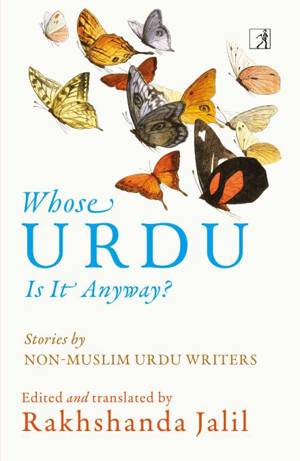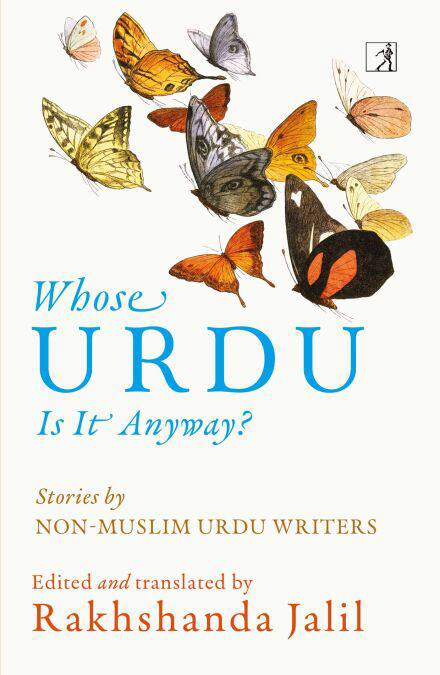
- Afhalen na 1 uur in een winkel met voorraad
- Gratis thuislevering in België vanaf € 30
- Ruim aanbod met 7 miljoen producten
- Afhalen na 1 uur in een winkel met voorraad
- Gratis thuislevering in België vanaf € 30
- Ruim aanbod met 7 miljoen producten
Zoeken
€ 12,29
+ 12 punten
Omschrijving
Is Urdu the language of Muslims? Or, to be more precise, the language of Indian Muslims?
In modern-day India, is Urdu a language of Upper India? What of the Deccan plateau, then, which was once the cradle of Urdu? Can the India south of the Vindhyas lay claim to Urdu? What of the sweet cadences of the Urdu of the Malwa region or the princely states of Bhopal and Hyderabad or even the rural hinterland of present-day Telangana, which has suffused Urdu with a lilting charm over a period of slow distillation spanning several centuries?
So, whose Urdu is it anyway? As long as Urdu is yoked to a religion—Islam—and a certain community—the Muslims—it will never be understood in its entirety.
This collection of sixteen short stories, entirely by non-Muslim Urdu writers, is an attempt to bust stereotypes and address a persistent misconception: that Urdu is the language of India’s Muslims and that it addresses subjects that are, or should be, of concern to Muslims, and Muslims alone. It locates Urdu in its rightful place—in the heart of Hindustan.
Krishan Chander * Rajinder Singh Bedi * Mahinder Nath * Devinder Satyarthi * Kanhaiyalal Kapoor * Ramanand Sagar * Sarla Devi * Devendar Issar * Surendra Prakash * M. K. Mehtab * Ratan Singh * Balraj Komal * Joginder Paul * Deepak Budki * Renu Behl * Gulzar
In modern-day India, is Urdu a language of Upper India? What of the Deccan plateau, then, which was once the cradle of Urdu? Can the India south of the Vindhyas lay claim to Urdu? What of the sweet cadences of the Urdu of the Malwa region or the princely states of Bhopal and Hyderabad or even the rural hinterland of present-day Telangana, which has suffused Urdu with a lilting charm over a period of slow distillation spanning several centuries?
So, whose Urdu is it anyway? As long as Urdu is yoked to a religion—Islam—and a certain community—the Muslims—it will never be understood in its entirety.
This collection of sixteen short stories, entirely by non-Muslim Urdu writers, is an attempt to bust stereotypes and address a persistent misconception: that Urdu is the language of India’s Muslims and that it addresses subjects that are, or should be, of concern to Muslims, and Muslims alone. It locates Urdu in its rightful place—in the heart of Hindustan.
Krishan Chander * Rajinder Singh Bedi * Mahinder Nath * Devinder Satyarthi * Kanhaiyalal Kapoor * Ramanand Sagar * Sarla Devi * Devendar Issar * Surendra Prakash * M. K. Mehtab * Ratan Singh * Balraj Komal * Joginder Paul * Deepak Budki * Renu Behl * Gulzar
Specificaties
Betrokkenen
- Auteur(s):
- Uitgeverij:
Inhoud
- Aantal bladzijden:
- 208
- Taal:
- Engels
Eigenschappen
- Productcode (EAN):
- 9788198604101
- Verschijningsdatum:
- 16/07/2025
- Uitvoering:
- E-book
- Beveiligd met:
- Adobe DRM
- Formaat:
- ePub

Alleen bij Standaard Boekhandel
+ 12 punten op je klantenkaart van Standaard Boekhandel
Beoordelingen
We publiceren alleen reviews die voldoen aan de voorwaarden voor reviews. Bekijk onze voorwaarden voor reviews.












